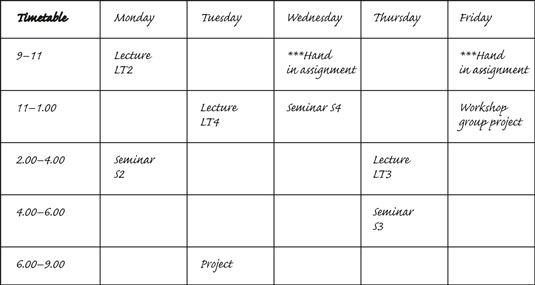Categories(658 Blogs)
Select Category
Watch Right Now
Teacher App - Class
Schedule & Attendance Management App
Parent App from Edsys

Best School Bus Tracking System

Cashless School - For Smart Schools of Tomorrow


Five Tips for Keeping the Kids Learning during Quarantine Period

The corona virus pandemic has led to countries resorting to complete lock downs to quarantine the citizens and to prevent the spread of the virus.
Educational institutions were the first to close their operations. Parents are bewildered at the thought of looking after their children during this period of social isolation. They are looking for tips for keeping kids learning during the quarantine period.
It would be appropriate for the parent to explain to the children what the corona virus is and why this isolation is required. It should be explained to them that their parents are with them ensuring their safety and security. Allaying their fears of the present situation enables them to free their minds for other activities.
Schools have taken various methods of education at this time of closure. Most of the schools have their courses online. This way the students can continue with their studies without a break. E-learning is more effective for children in higher grades and colleges.
It is difficult to implement remote learning for children in elementary sections. There are many who do not have devices at home to support online learning. Some school districts have provided students with devices. Some others have sent worksheets and books home.
The parents who work remotely face a struggle. It becomes difficult to juggle between their work, devising activities for toddlers and supervising e-learning for older kids. The parent can provide the kids with a balanced schedule for study and other activities. Since all children are not of the same mind-set, some wanting to play more, some wanting to study less – it is better that the parent takes up the role of a supervisor.
It is essential that the learning and activities keep the children’s brain sharp and alert. The following tips will enable parents to organize themselves and plan a daily routine for all at home.
TIPS TO KEEP THE CHILDREN LEARNING
1. Create a Schedule

The parent has to devise a structure that suits the family environment. The schedule should cater to the individual needs of a child. The child has to understand that he is not on a holiday but has to attend classes from home.
Parents can devise their lesson plans or follow what the school has outlined. The mainstream schools have a structured timetable for the week. Adhering to the school routine will ensure that the child will not be lagging in his work.
The time allotted for study can be decided by the parent. The time frames set by the schools can be followed depending on the child’s progress. Some children need more time to understand and grasp facts. Being flexible will help reduce the stress on the child and the parent.
As a thumb rule, normally 15 minutes of study for each year of the child is what is followed in home schooling. A six year old will need about 90 minutes of study. Children in higher grades will need half a day. The period from 10 am to 1 pm is ideally suited to learning.
Work gets done in a more efficient manner in homeschooling. Hence the schedule does not have to allocate the same number of hours as in school. The schoolwork can be interspersed with time for art, music and other activities.
The time for breaks will have to be decided depending on the children’s attention span. Occasional breaks will prevent boredom. The children should be allowed time to relax between their learning schedules. It is seen that giving children freedom to learn increases their motivation.
The parents have to communicate with the children and offer help if required. Children of younger age groups would need constant supervision and encouragement. The environment and the method of implementation of the learning schedule are more important than achieving time-lines.
The entire process can be made fun with a couple of hours in the morning for lessons. Physical exercises can be incorporated into the daily routine and can be scheduled for the evenings.
2. Create a Learning Environment

There is no stipulated guideline on what a learning space should be. It would be advisable to create a space for learning so that children can focus on their work. Every child has different ways to learn. A single environment may not work for everyone. Schools have found this as a challenge as they have limitations in creating different environments.
In this aspect home learning has an advantage. Different environments can be created inside the house or outside. Learning can be done anywhere as far as the child can concentrate and be safe. Children should be free to choose their place of learning. Children opt for different methods – sit at a table, lying on the ground, listening to music while studying.
Distractions should be limited. TVs should be switched off. Internet programs should be delinked for specific duration. It would be advisable if the family as a whole would refrain from loud distracting activities during the time allotted for learning. This will motivate the children to finish their lessons on time. Moreover, it would also make the children regard their parents with esteem.
Mean while also look at some precautionary Measures to take inorder to avoid Corona(Infographics)

3. Assist, aid, facilitate

In a home learning environment, the parent’s role is that of a guide and facilitator. Children should be allowed to learn by themselves. They should not rely on parents for learning. They should learn to take control of their study.
The child may be assisted with suggestions and solutions if he encounters difficulty in his work. If the parent is in doubt it would be better to work together with the child to find a solution.
The schools and states have online sites giving support to parents. The parent should be on hand to assist and aid the child. The parent should take care to not get in the child’s way and hamper his progress. The parent should remember that they are only facilitators in the process of home learning.
There are also online support programs for children. Links are published by school authorities for home learning. It has to be ensured that the sites used are those from official authorities.
Parents have to incorporate frequent breaks, be less critical about the errors and make lessons pleasant. Parents have to remain calm and not get overworked over the children’s learning process.
4. Parent Updating

The parent adopts the role of a teacher or supervisor in home learning. The schools provide the learning material online. If not, it would be advisable to check the respective websites for the curriculum. Guides are available to understand the curriculum in detail. It is imperative that the parent goes through the study material online to effectively aid and facilitate the child’s learning.
5. Upgrading Technology

The parent has to check what computer programs are required to access the work sent from school. Adobe Acrobat Reader or Adobe Flash player may be required for pictorial and graphical work. Some companies are offering free online programs and services during the quarantine period. Adobe is offering free access to its cloud facilities to school IT administrators.
With teachers delivering lessons online downloading teleconferencing sites becomes a necessity. Sites like Skype and Zoom can be downloaded for free.
It has to be ensured that all the programs are downloaded from their official sites to prevent exposure of the computer malfunction due to viruses.
Parents generally leave the education of their children to the schools. Homeschooling is uncharted territory for many. All schools are not geared for online lessons and virtual classrooms. They are in the process of identifying what works best for the curriculum and the kids. This unprecedented quarantine has forced parents and schools to cope with learning from home.
Over and above this, it is best to inculcate in the kids the habit of reading. Encourage them to read. Reading will keep their minds stimulated. Reading helps in increasing the attention span of the kid. These qualities will be a life-long asset to the child. Reading will help them in their learning whether or not they attend school.
Recent Blogs
Our Educational Services
Popular Blogs
Subscribe

SUBSCRIBE TO OUR NEWSLETTER
Sign Up and Recieve the Latest News
Don’t Worry, We Don’t SpamExplore Our Extensive Researched Educational App Directory
Visit Now

















